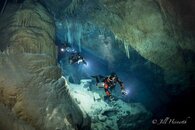I am in Bermuda this week and have lots of reminders about water conservation. The drought continues in Bermuda and despite the fact we had a gentle rain this morning, there is still a great worry about how to get and pay for water here. Last night my hosts carefully saved the baby’s bath water and used it in the garden. Not a drop is wasted. Today they await a delivery of water to partially fill their cistern. It is $90 per 1000 gallons. If this family used water at the rate that most Americans did, their daily bill would reach well over $50 a day. Could your family afford $20,000 in extra expenses or might you treat water as the precious and limited resource that it is. Water is always on the minds of Bermudians, even thought hey live in the center of a vast ocean. I challenge you to spend a day considering every drop you use. Think about the true cost of water and help us all save a little bit. Here is a beautiful picture of the glory of water in Bermuda just as a thanks.
Jill
www.WeAreWaterProject.com

Jill
www.WeAreWaterProject.com





